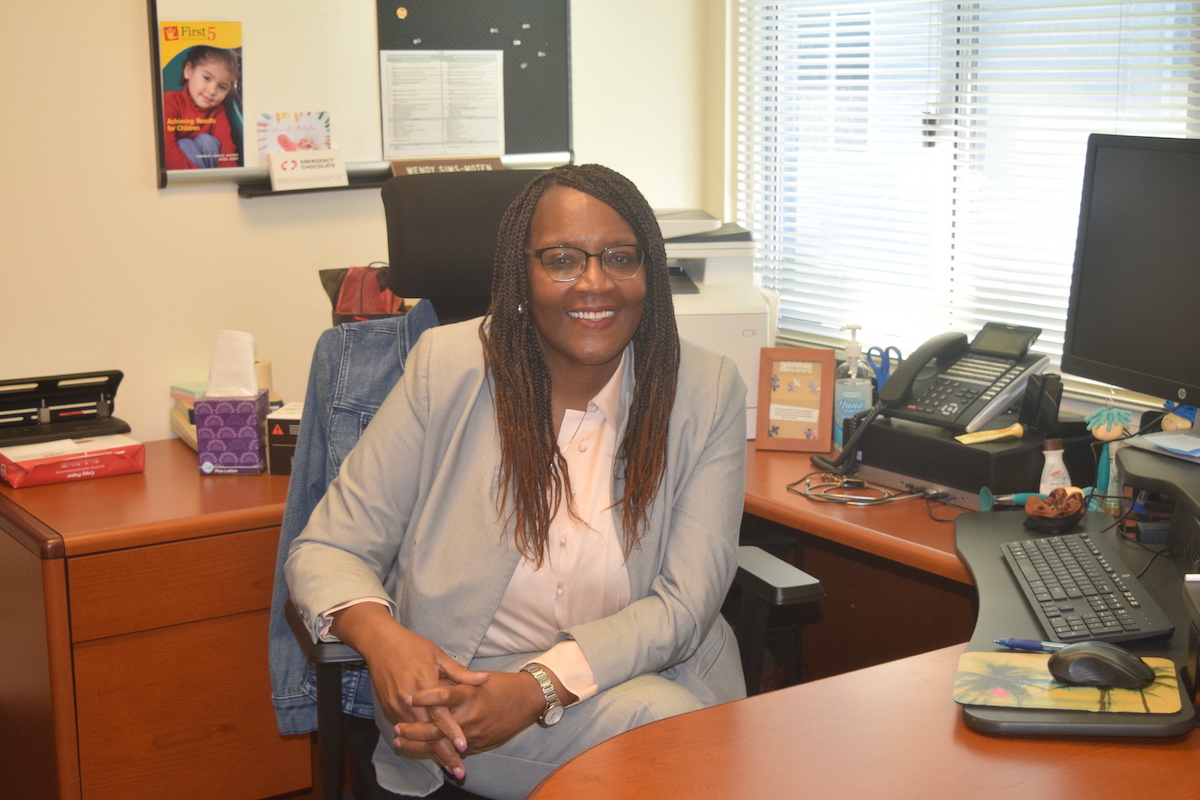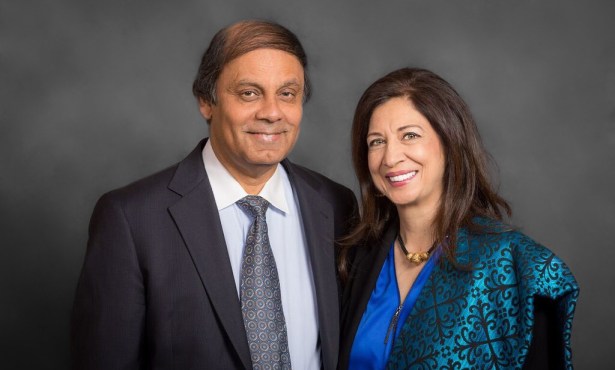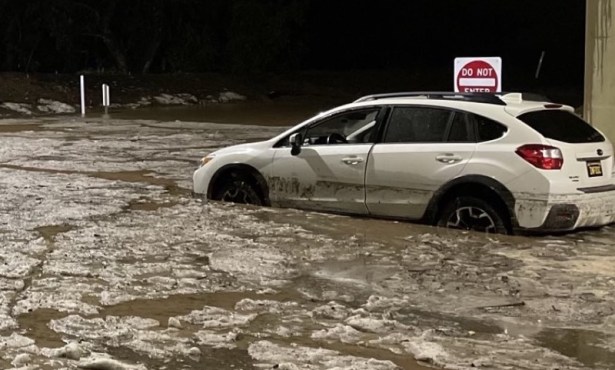Santa Barbara School Board Member Explains Anti-Blackness
Wendy Sims-Moten Calls Out What Needs to Be Addressed

The Santa Barbara Unified School District has reported 12 incidents of racially motivated harassment or violence, across seven schools. This report came after a mother in the district spoke out during public comment at a Santa Barbara Unified Board of Education meeting about her son’s specific experience, and called on board members to do more for her son and children in the district. Community members rallied behind the mother and other Black children in the district.
During the March 15 school board meeting, Assistant Superintendent Frann Wageneck gave a presentation about the district’s plans for responding to racial incidents, which many public commenters criticized. In that same meeting, the district approved a contract to have James Joyce, founder of Coffee with a Black Guy, facilitate restorative conversations with the families impacted.
The Independent sat down with Boardmember Wendy Sims-Moten to talk about her perspective on anti-Blackness in Santa Barbara and in the school district, and what communications need to happen to facilitate change.
During the meeting on February 22, what was it like for you to hear a mother and other community members talking about their experiences and their children’s experiences with anti-Blackness in the Santa Barbara School District? My main thought when she came on was, “Are we taking good care of her son? Of her?” That’s the main thing we have to do when somebody has been harmed: make sure we’re taking care of them and their needs. I also thought about the young boys who did this harm, and wondered what was going on there. What happened to make them think that’s okay? But they are kids, and they’re still developing, so we know how impressionable their young minds are when it comes to our communities, our actions as adults, and the world at large. I think we can take this opportunity to get at the root of it.
I was just very sad, and disappointed that we’re here again. “Enough already” was in my brain. Speaker after speaker was not only sharing what had happened to them, but generationally to their children. For whatever the reasons, we just don’t want to confront this. This has obviously been here a long time, and it’s not going to be solved tomorrow. We’re going to get through this and fix it, but fix doesn’t mean tomorrow; it’s a long process that we’re going to have to go through. I think we can do it, but we cannot do it without being honest.
Why is it important to acknowledge anti-Blackness during these conversations, rather than having a blanket conversation about racism? Because it never has been acknowledged. That really hits at the heart of what we have not addressed in this country. It just does. It has to be called out because that’s what it is; there’s no going around it. The fact that people question why we call it that is anti-Black. You question before you believe.
I’ll never forget a time when I was going in for an interview in this county, and I talked on the phone before going into the interview, and when I got there, someone said “Oh, you don’t look how you sound on the phone.” That is anti-Black. That’s why you have to call it out. So you have a certain perception of how Black folks should talk? So yeah, you have to call it out.
You have to be specific because it is specific. Words matter. The more that we are specific about it, the more tangible it becomes. If you want to generalize it, then you’re never going to get to the root of it. It’s just like saying you don’t see color, because then you don’t see me.
Sign up for Indy Today to receive fresh news from Independent.com, in your inbox, every morning.
What can the district do to address teachers, administrators, or any adults working in the district who have settled into defensiveness and decided they don’t need to learn about anti-racism because they believe they’re not racist? It has to start with your own self-work. We shouldn’t expect that people are all of a sudden going to change and start doing what they haven’t been doing. It has to come in phases. Maybe you don’t think you’re racist, maybe you’re indifferent, but until you find out, you don’t really know until you take a look outside of yourself.
I think this starts with the culture and having a culture in our school district where these conversations can take place. You know, life moves and changes, and how do we make sure we’re evolving with it? Start by going back and examining what made you want to be a teacher in the first place. Don’t expect someone to start talking about racism when they’ve never done it before and they’re uncomfortable.
As a Black woman, I’m not necessarily comfortable talking about this, but I have experience, and sometimes that drives your comfort. It has to be a slow, steady change. Maybe you’re not ready to have these conversations, and if you’re not ready, don’t force yourself, because you’re not really going to add or contribute to that conversation.
I think we need to start with those that feel ready and want to do this. As we have these conversations, don’t have expectations that because we’re focusing on this, that everyone’s going to be on board and suddenly change who they are. I think we all grow, but it has to be at their speed. I think for our teachers, there are a lot of things that are mandated in this world, and it’s unfortunate that we have to mandate kindness and respect and empathy.
What can the school district do more to be transparent, such as providing details about the 12 incidents of racial violence? The school does not exist without the community, so it’s important that we incorporate community engagement. I think we can also do better explaining our education codes, what we can and cannot say.
But that trust isn’t there. We need this relationship; it’s almost like a public private partnership. We need to acknowledge where people are.
Can you talk about your own experience bringing your son up in the Santa Barbara School District, and how the conditions have or have not changed since then? What I experienced with my son growing up in the district was always reminding him of who he is and being mindful of how the world was going to see him as a young Black man.
I was often the one at the parent meetings for my son, because of my husband’s work hours, but he very much grew up in a two-parent household. There were times where I needed to step in with my son, because there was this perception that I was a single mother, so I called it out. I said my son has both parents in his household, and whatever my son may be going through, one does not have to do with the other.
During the board meeting when people were talking about their experiences, my heart dropped, because the experiences that I’ve had, that my son and my brothers have had, are not changing. But now is the time to start sustainable change, and not back away from it. Keep calling it what it is.
Support the Santa Barbara Independent through a long-term or a single contribution.



